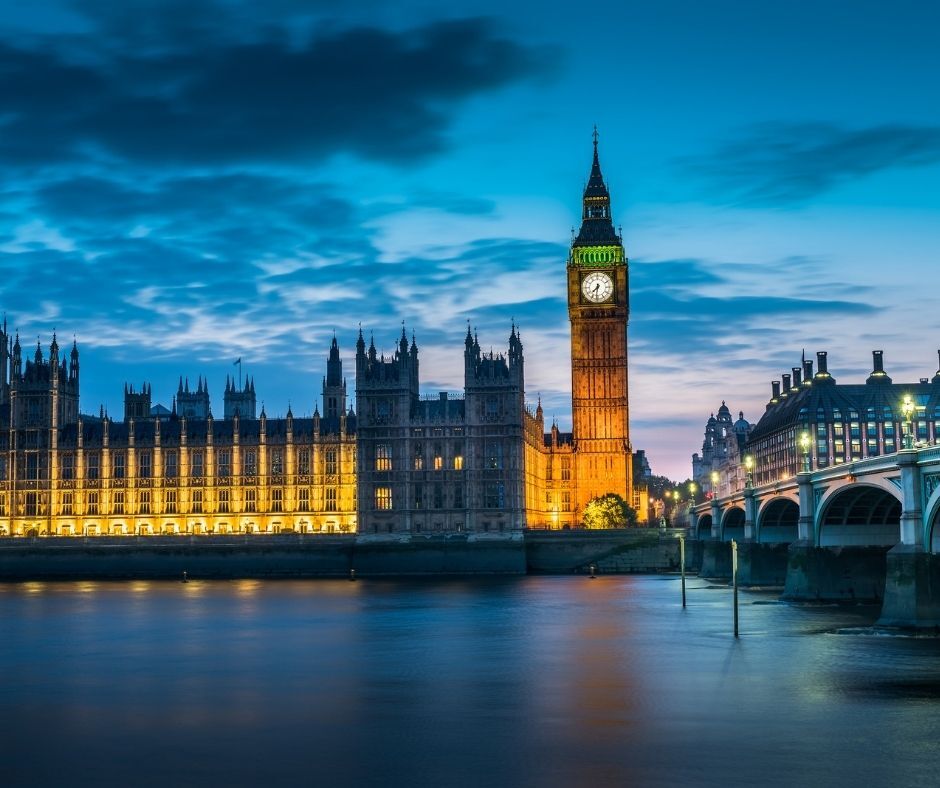British Citizenship of Millions of People Could be Jeopardised by a New Law
Concern grows about a UK Bill that allows individuals to be stripped of their citizenship without notice
When it seems we were all looking the other way, a new clause was quietly added to the UK government’s Nationality and Borders Bill which could have far reaching consequences for millions of UK citizens.
Clause 9 of the bill, “Notice of Decision to Deprive a Person of Citizenship”, was added in November 2021 just before it’s third and final reading in the House of Commons. This clause exempts the government from having to give notice to any individual that they are being immediately stripped of their British Citizenship. The government wants the right to invoke this clause on practical grounds or if it’s in the interests of “national security, diplomatic relations or otherwise in the public interest”.
In essence, if this Bill passes into law, the authorities will not have to alert individuals that they have just been stripped of their nationality.
Currently the Home Office has to make some effort to contact such individuals beforehand: Clause 9 effectively removes this requirement.
The Bill has now cleared the House of Commons and – at the time of writing – is due for its first reading in the House of Lords in January 2022.
What does the Clause 9 amendment of the Nationality & Borders Bill mean?
The new powers are exceptionally broad and indeterminate. They would also appear to be capable of being applied retrospectively to cases where an individual was stripped of citizenship without notice before the clause became law, raising questions about their ability to appeal.
Of course Deprivation of Citizenship by the Home Office is nothing new. The Nationality, Immigration and Asylum Act passed in 2002 enabled the government to strip someone of their British citizenship provided they had another nationality. Since 2006, the British Home Secretary has had the power to deprive dual nationals of their British citizenship if doing so is "conducive to the public good."
In 2014, these powers were extended to include foreign-born British citizens without dual nationality, so long as the government believes they are eligible for foreign citizenship and if they have acted "in a manner which is seriously prejudicial to the vital interests of the United Kingdom, any of the Islands, or any British overseas territory."
Shamima Begum is perhaps the highest-profile case of the law being enacted in this way. Begum was born in the UK as a British citizen on the basis of her parents’ immigration status. She left the UK at age 15 and travelled to Syria to join an extremist group. She wants to return to the UK having rejected Islamic extremism, but she was stripped of her citizenship by the then Home Secretary Sajid Javid who cited national security grounds as the reason.
Begum is not alone. The UK has had a recent, significant rise in citizenship deprivations. Between 2006 and 2018, 175 people lost their citizenship on national security grounds – but 100 of those instances occurred in just one year, 2017. Most have taken place when the British citizen is already overseas, so they would be unlikely to know about cancellation orders and would find it difficult to appeal.
Will you be impacted?
Even if you were born in the UK of immigrant parents, have previously been given legal British Citizenship, or have dual citizenship, or have married a British Citizen under a Spouse Visa and subsequently been granted British Citizenship, it could all be taken away by the UK Government, without notice, and potentially with a limited right of appeal.
The decision would be placed in your Home Office file, and you would only get to hear about it when, for example, you apply to renew your UK passport, or when you try to re-enter the UK after a trip abroad.
Setting a precedent
We are troubled by this new law on several fundamental levels, and not just as specialist Immigration lawyers, but as functioning and contributing members of the human race.
We believe that citizenship isn’t a privilege dependent on ministerial whim, but a status on which legal order is built.

The government has been reticent on defining what they mean by “in the public interest”. Could that include displeasing the government of the day in some tenuous way, even if no crime is committed and no law is broken?
In a pivotal House of Lords judgment on notice in 2003, Lord Steyn said that “surprise is regarded as the enemy of justice”. He also stated that fairness is the guiding principle of our public law, and that fairness requires that a decision takes effect only upon communication.
So our next question is this: how can a person challenge a decision that they do not know about?
Removing the citizenship of a person without telling them signals a retreat from one of the law’s most fundamental values, which is that an individual has a right to know of a decision before their rights can be adversely affected.
Clause 9 also sends a message to a group of Britons, that despite being born and brought up in the UK and having no other home, their citizenship is far from secure.
We also question what evidence the government has to justify including such a potentially prejudicial clause. The Home Secretary Priti Patel has long promised a tougher approach to immigration in the UK, particularly when it comes to people trying to enter the country through the English Channel.
But the tragic loss of 27 people who died while trying to reach England via dinghy in November 2021 shows that there is not nearly enough cross-border co-operation to rationalise enacting such draconian measures that could impact millions, when they should probably only apply by exception for a tiny minority.
What can you do?
Our core issues with Clause 9 arise from our belief that we all have a collective responsibility to ensure to the best of our ability that our fellow men, women, and children are happy and healthy, and that we have a moral duty as human beings to stand up for those who cannot stand up for themselves.
Clause 9 could potentially affect numerous numbers of minority communities who could wake up one day to find their citizenship has been revoked. We believe that Clause 9 needs more debate and – crucially – more proof that it is needed at all. There is an online petition asking for it to be removed from the Bill that (as of today) has amassed over a quarter of a million signatures.
Of course, there is no substitute for education in promoting tolerance and understanding above and beyond our political, cultural and religious differences. So we urge you to familiarise yourself with the new Bill, and especially Clause 9, using independent sources so that you can read up on both sides of the argument.
At Ash Hill Solicitors we specialise in all matters relating to immigration law and would be happy to have a 20-minute free initial discussion about any immigration concerns that you may have.
Please find set out below our specialist immigration solicitor’s LinkedIn profile for your ease of reference.



BOOK FREE 20 MINUTE CONSULTATION
Address
Harrow Business Centre
429-433 Pinner Road
North Harrow
Harrow
HA1 4HN
Ash Hill Solicitors is the trading name of Ash Hill Solicitors Ltd, which is a company limited by shares and registered in England and Wales with number 13281665.
All Rights Reserved | Ash Hill Solicitors

